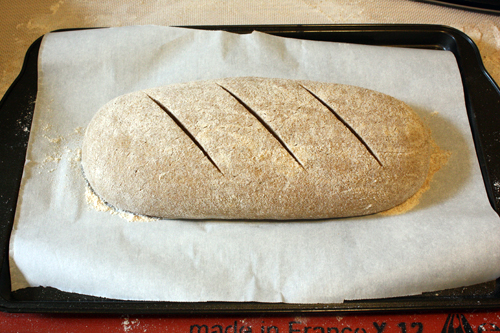
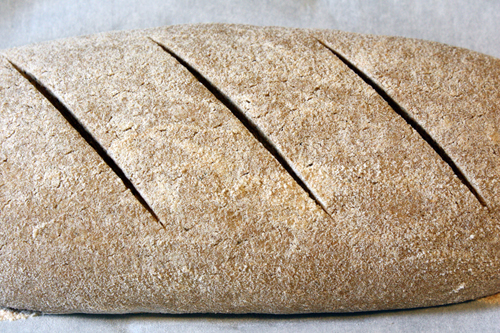
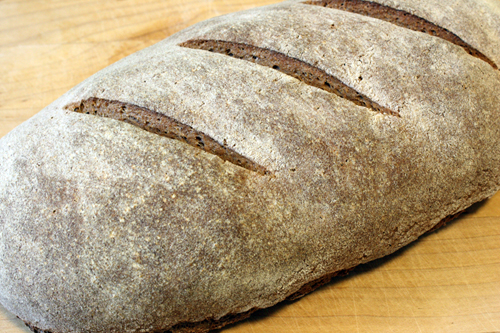
I kind of wish I hadn’t put so much flour on the crust. Looks pretty good though. I’ll have to wait until tomorrow night for the verdict.
Baked for 50 minutes, rotating pan after 20 minutes.



I kind of wish I hadn’t put so much flour on the crust. Looks pretty good though. I’ll have to wait until tomorrow night for the verdict.
Baked for 50 minutes, rotating pan after 20 minutes.
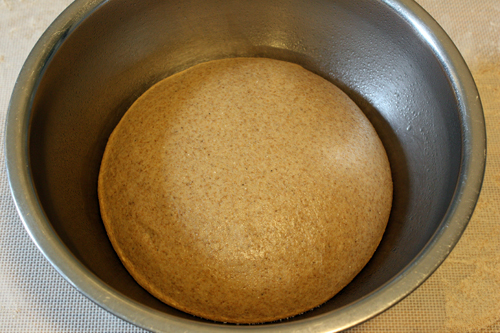
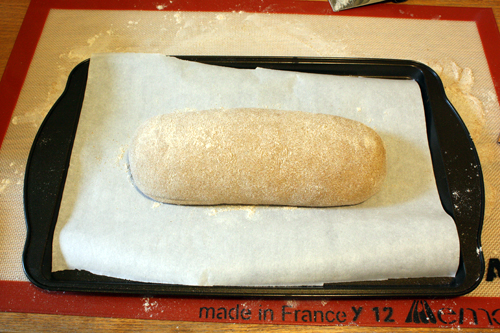
I was going to form it into 2 round loaves, but I changed my mind and went with one oblong loaf. I sprinkled it with plenty of whole wheat flour so hopefully it will have a pretty crust. I also put a couple of round jars under the parchment on either side to create sort of a cradle so the dough doesn’t spread out too much while proofing.
The rye starter seemed to have risen a bit by this morning so I went ahead and mixed up the dough. I did the mixing in my stand mixer, which made it a lot easier. The final kneading still had to be done by hand, but the dough was much easier to work with.
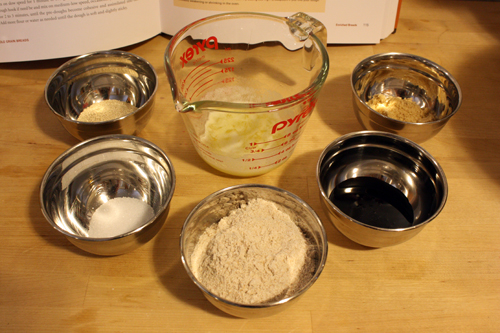
I decided to use a different fat (butter) and sweetener (brown sugar) this time. The recipe called for molasses so I thought the brown sugar would complement that well. I didn’t use the optional chopped onion or caraway seeds this time (some people might not be fond of the seeds), but I might try using them another time. Also, this time I didn’t bother hydrating the yeast first, which I had been doing for previous loaves because I’m using active dry yeast instead of instant. It didn’t seem to make much of a difference. The dough is rising just fine.
soaker
rye starter
2 oz whole wheat flour
5 g salt
.25 oz yeast
1 oz molasses
.5 oz organic brown sugar
1 oz unsalted butter, melted
extra flour needed: .5 oz
I mixed it for about a minute with the paddle attachment, then switched to the dough hook and mixed it on medium speed for about 3-4 minutes. I had to keep pushing the dough down with a spatula so it would all mix evenly.
Then I kneaded it on a floured surface for a few more minutes, let it rest for 5 minutes, then kneaded it for another minute before placing it in an oiled bowl to rise for an hour.
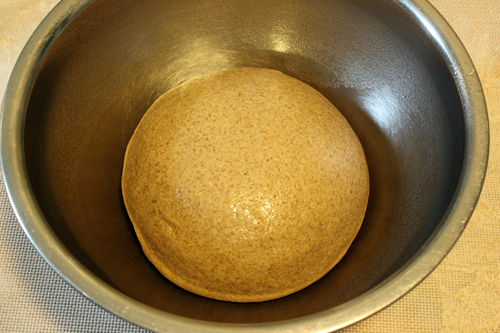
This dough feels pretty sturdy, so I’m hoping it’ll keep its shape when I form it into round loaves, instead of flatten like my other loaves did.
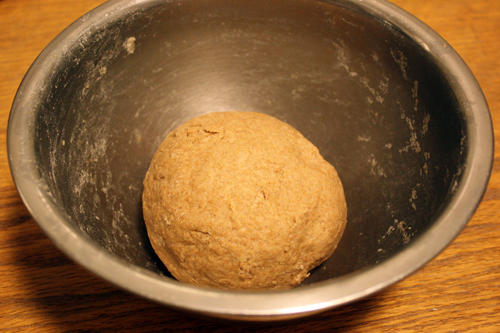
This is basically the same soaker as the first one I made. The difference is that this one called for slightly less liquid. Not really sure why that is.
8 oz whole wheat flour
1/2 tsp salt
6 oz milk
Friday night we’re having dinner at my parents’ house, and since my Mom’s the one who gave me this cookbook I thought it would be nice to bring her some homemade bread. I decided on a loaf of rye bread to serve with spinach and artichoke dip as an appetizer.
The bread I’m making is the Rye Sandwich Meteil, which means it contains less than 50% rye flour. The only rye flour in the whole recipe is in the starter.
2.5 oz mother starter
7.5 oz whole organic rye flour
6 oz filtered water
Follow the same procedure as with the wild yeast starter.
I mixed this up a few hours ago, and I don’t really see any change yet. I refreshed my starter before making my last loaf of bread, so it should be okay. I hope there isn’t something wrong with my rye flour. I’ll let it sit overnight, hopefully it’ll show some activity.
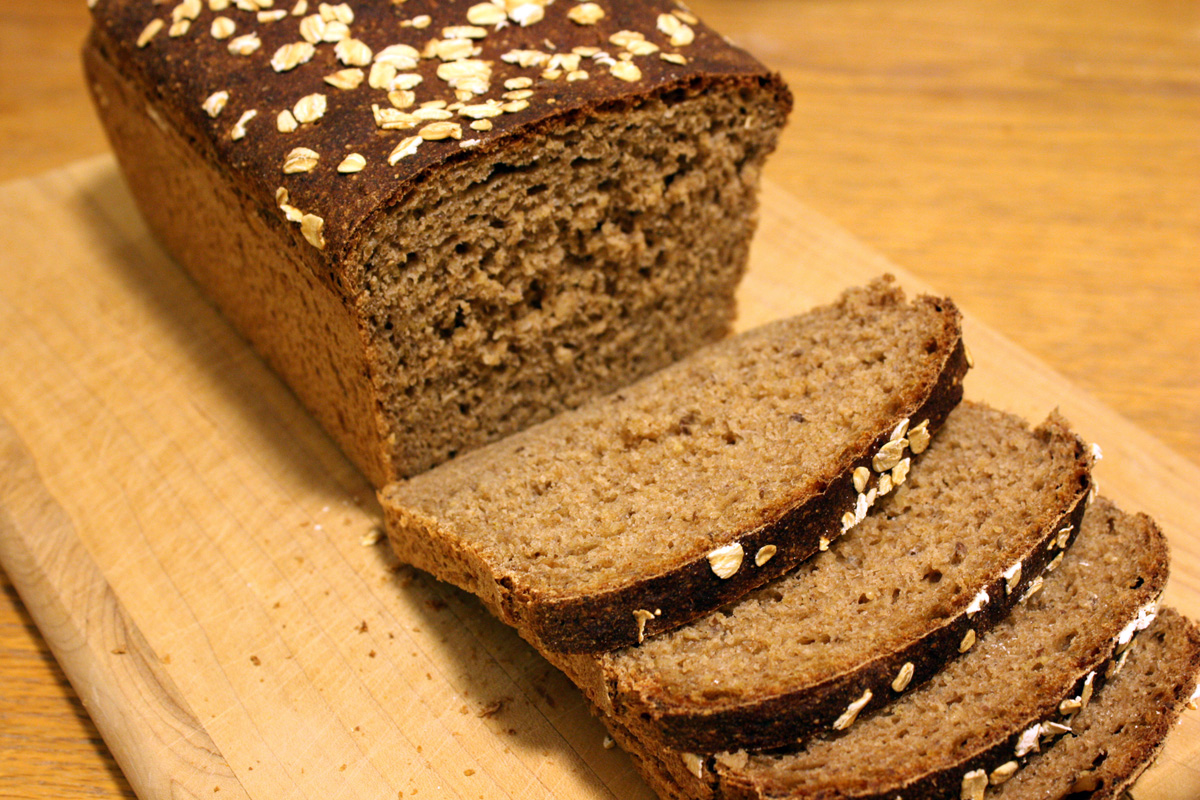
It tastes wonderful, but I’m not sure why the center is so crumbly. My other sandwich loaf was like that too. I had just assumed that it was undercooked, but I don’t think that’s the case. Maybe I should have kneaded it longer to develop the gluten more. Or maybe it needs more flour. I’m always worried about adding too much flour in the kneading process, but maybe I’m not adding enough.
I think next time I’ll try making the dough in the mixer.
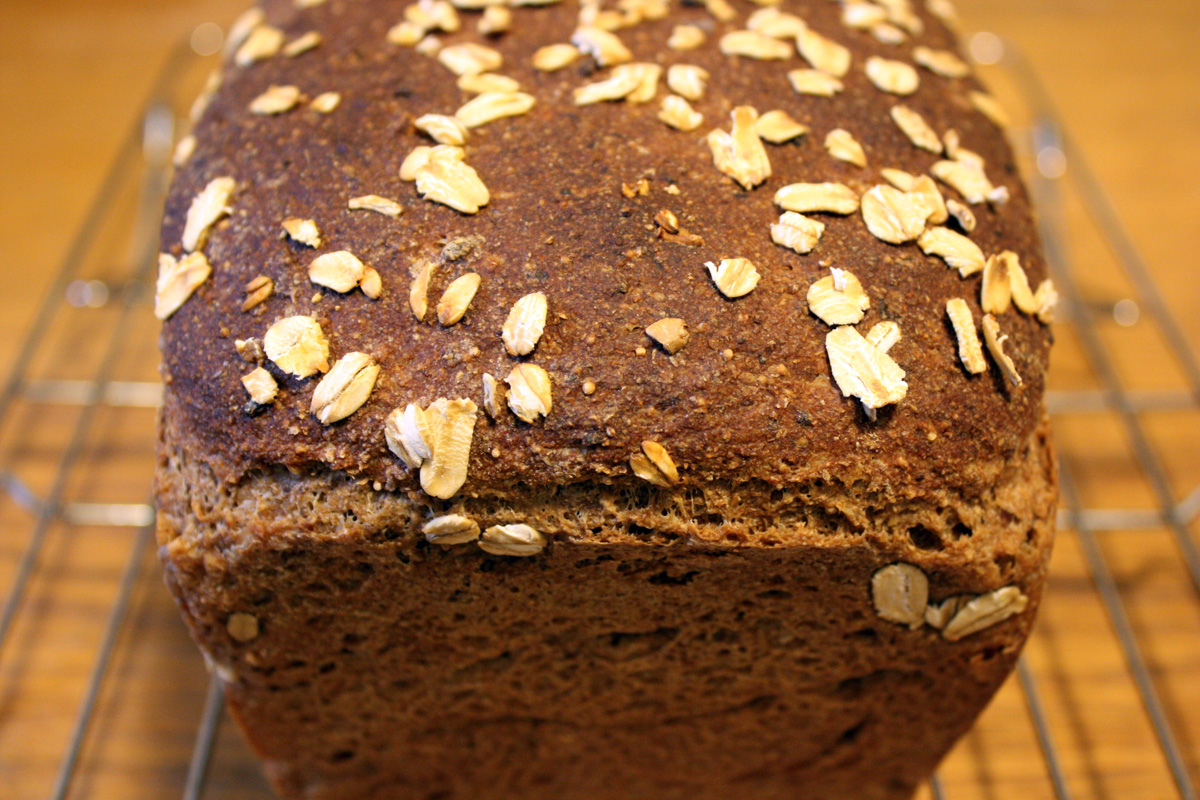
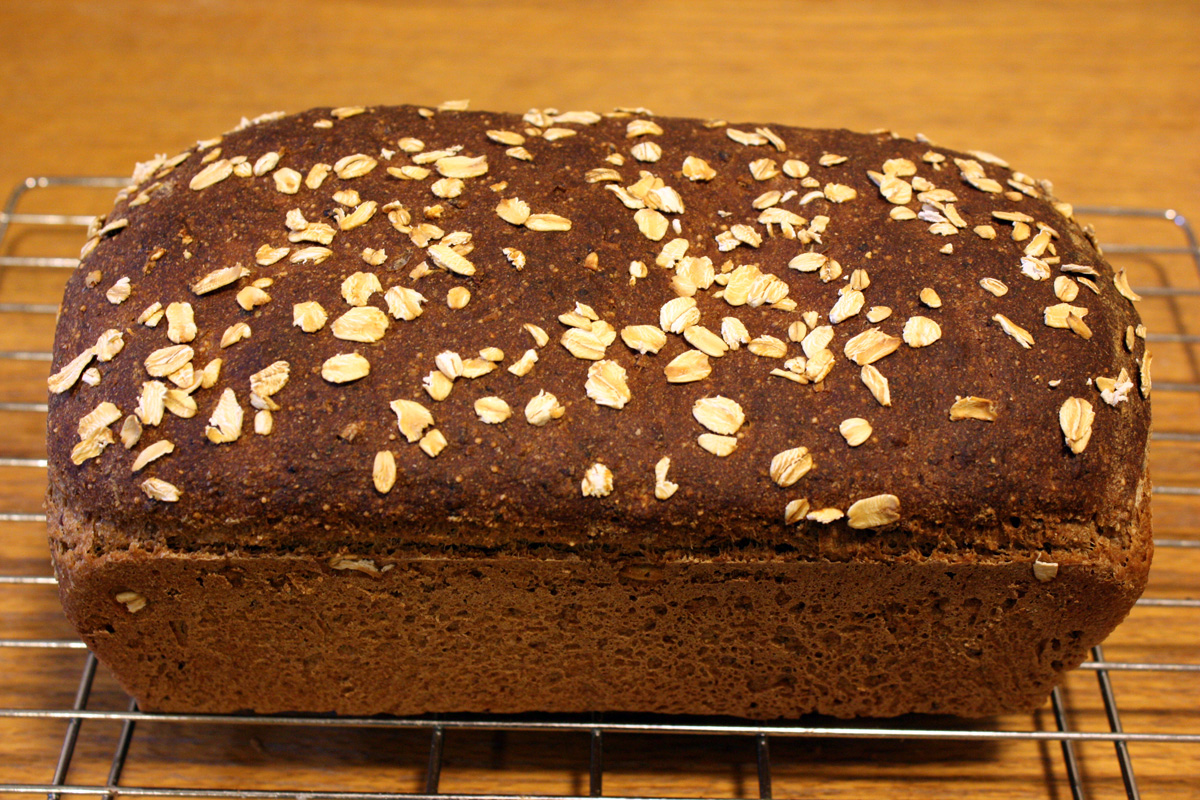
It proofed for an hour, then baked as usual (350°F), 60 minutes, turning the pan after 30 minutes. Looks good! Can’t wait to taste it.
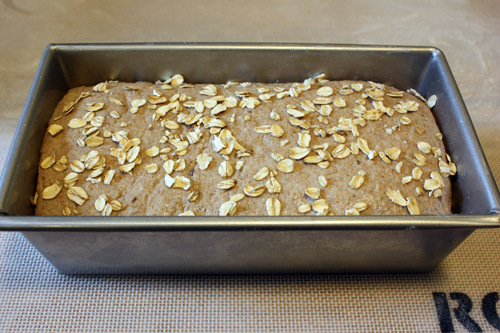
I think I might need a bigger loaf pan for this recipe. I suppose I could have just used part of it and made a couple of rolls or something with the extra dough.
I brushed it with water and sprinkled it with rolled oats. I’m going to try not to let it proof as long as my last sandwich bread.
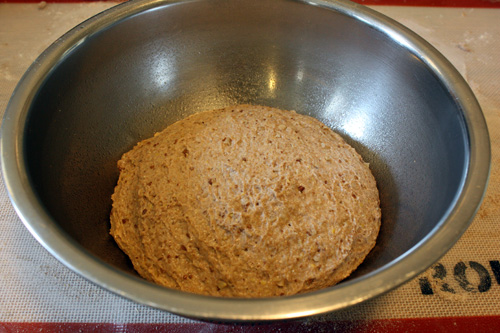
Besides the soaker the ingredients were the same as for the Multigrain Struan. Mixing method is here.
Extra flour needed: 2.75 oz
I was thinking it might be a good idea to try using different kinds of fats and sweeteners to see if I like anything else better. I’ve just been using canola oil and honey every time.
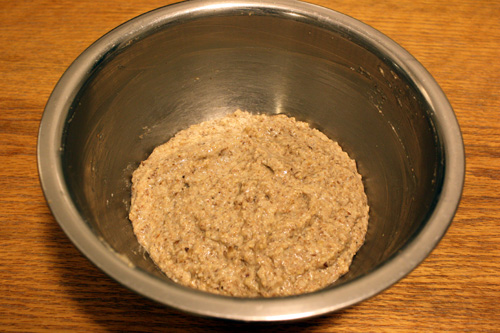
This soaker is very similar to the last one, but I ground up the flax seeds and amaranth beforehand. I also heated up the milk in the microwave for a minute.
1/4 cup steel-cut oats, cooked in 1 cup water for about 20 minutes
1 tbsp oat bran
1 oz flax seeds, ground
1 oz amaranth, ground
2 oz whole wheat flour
1/2 tsp salt
6 oz milk